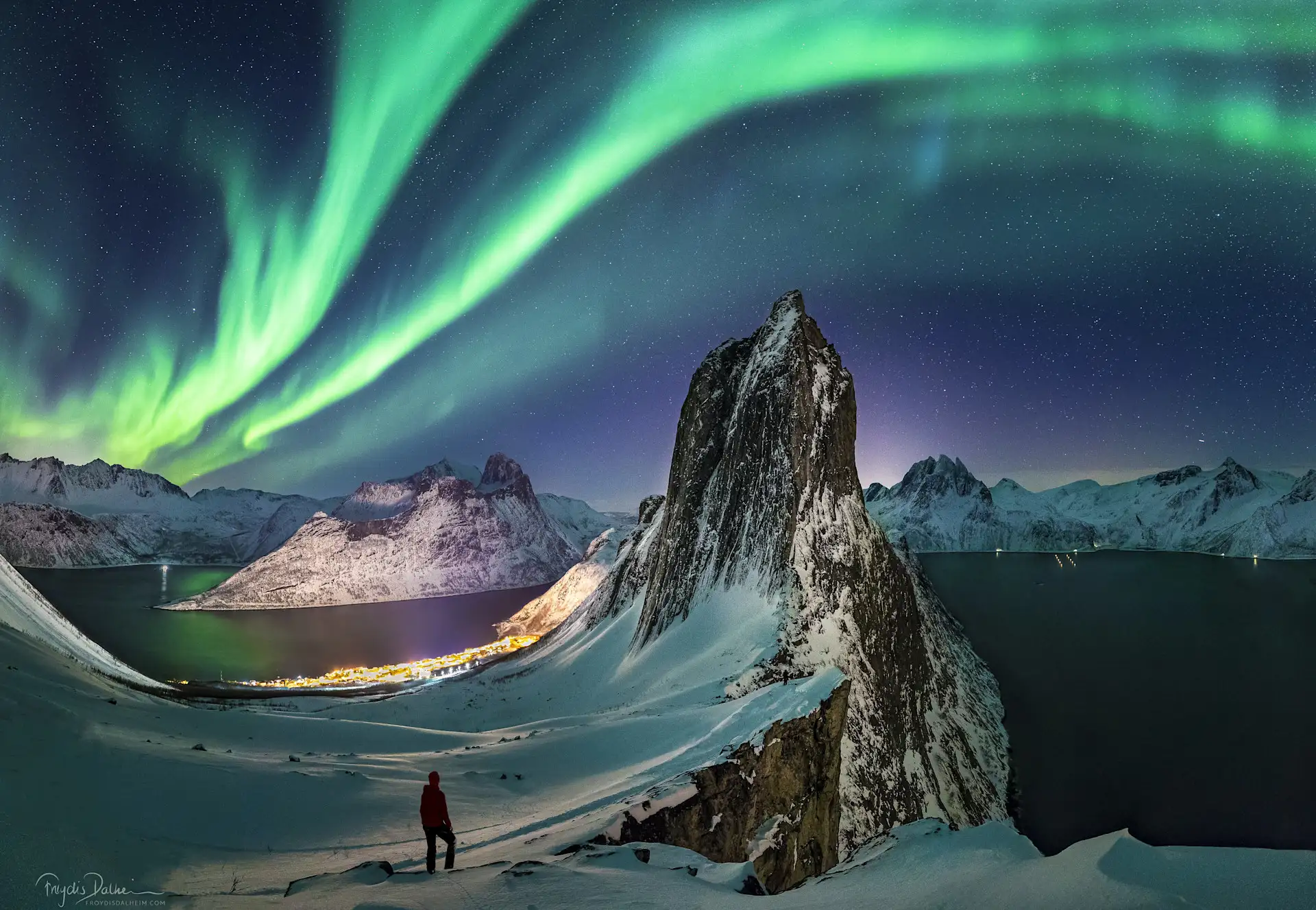Cruises and Tours
Choose how you want to experience the many wonders of the Norwegian coast and Scandinavia.
Our famous route connecting local communities since 1893
The original Coastal Express we founded over 130 years ago
Up to 34 diverse ports, with ten minutes to four hours in each
Regional Norwegian ingredients sourced as we sail
Travel like a local alongside Norwegians
All-inclusive food and drink to our top-handpicked destinations
Award-winning Norway’s Coastal Kitchen cuisine
Up to 14 ports, with several hours to fully experience each
Wide choice of inclusive drinks in the ship's restaurants and bar
Large Expedition Team on board for more guiding
Extraordinary experiences throughout Norway and beyond
Iconic coastal voyages and journeys by rail and road
Expert guiding and themed storytelling
Unforgettable encounters with Nordic culture and scenery
Delicious onboard cuisine plus regional specialities

Explore the Northern Lights with us
Embark on a celestial journey during the 2025 Solar Maximum. It has been the most spectacular Northern Lights display in over a decade. Seize the opportunity to witness, learn, and photograph this extraordinary phenomenon now.
Book confidently with our Northern Lights Promise – get a free trip if the lights don't appear on select voyages (Ts&Cs apply).
Don't miss this celestial spectacle – book your journey and embrace the magic of the Northern Lights with us!
Special Offers
There’s more than one way to sail with us and discover the many wonders of the Norwegian coast.
- 1 day left!

Norway your way: Up to 25% off + Bonus OBC
Book by 15 July and receive up to 25% off and BONUS onboard credit on selected Original and Signature departures from 20 Sep 2025 to 30 Apr 2027.
See offer details - Valid until 31/03/2027

Northern Lights Promise on Norway voyages
Dreaming of the aurora borealis? We PROMISE an experience no one can match!
See offer details - Valid until 31/07/2025

Travel solo, without the single supplement
Travelling solo? Don’t worry about any extra cost when you book a solo cruise with us.
See offer details
Featured Voyages
Choose how you want to discover the Norwegian coast
- Tour package

Oslo - Honningsvåg - Rovaniemi - Helsinki (Northbound)
Follow the Northern Lights – Norway to Finland
On The Coastal Express - North | Flåm Rail
October 2025 - March 2027
17 days
40 Stops
Ship varies by departure date
- Tour package

Stockholm - Kirkenes - Bergen (Full-trip)
Follow the Midnight Sun – Norway, Sweden, & Finland
On The Coastal Express - South
May - July 2026
15 days
40 Stops
Ship varies by departure date
- Tour package

Helsinki - Rovaniemi - Honningsvåg - Oslo (Southbound)
Follow the Northern Lights – Finland to Norway
On The Coastal Express - South | Flåm Rail
September 2026 - March 2027
15 days
39 Stops
Ship varies by departure date
Join our 1893 Ambassador Programme
As a member of our 1893 Ambassador Loyalty Programme, you'll receive exclusive offers, benefits, discounts, and newsletters packed with inspiration.





